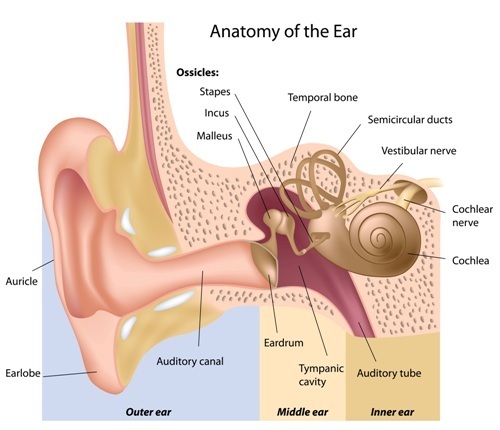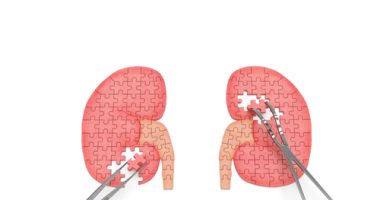Specific Protein May Be Potential Therapeutic Target in Alport Syndrome, Mouse Study Suggests

The protein endothelin-1 was found to be linked to both kidney and ear problems in Alport syndrome, according to a mouse study. Targeting endothelin-1 may be a therapeutic approach for the disease, and could prevent hearing loss.
The study, “Endothelin-1 mediated induction of extracellular matrix genes in strial marginal cells underlies strial pathology in Alport mice,” was published in the journal Hearing Research.
Alport syndrome is a disease associated with hearing loss and is characterized by thickening of a tissue called the stria vascularis. This is part of the auditory portion in the inner ear called the cochlea.
In Alport patients, the basal membrane of the blood vessels that compose the stria vascularis are thicker than normal. The mechanisms underlying this thickening, which later contributes to the loss of hearing in Alport syndrome, warrants additional investigation.
Here, a team of researchers investigated whether a protein previously linked to another symptom of Alport disease (a kidney condition called progressive glomerular disease) might also be implicated in strial defects. The team studied endothelin-1 (endothelins are proteins that constrict blood vessels and raise blood pressure) and found that it is induced in the stria of Alport patients.
They also observed that endothelin-1 activated endothelin A receptors on strial cells, and that this led to an increase in extracellular matrix proteins that accumulate in the basement membranes of the strial blood vessels (capillaries). Excessive accumulation of extracellular matrix proteins, such as collagen, is a key mechanism linked to Alport syndrome.
To understand whether endothelin-1 contributes to the disease phenotypes seen in Alport disease, researchers performed experiments where they blocked endothelin signaling. In both in vitro an in vivo experiments with an Alport mouse model, researchers observed that blocking endothelin signaling resulted in reduced extracellular matrix proteins, and it repaired the thickness of strial capillary basement membranes, returning them to normal.
These results suggest that endothelin-1 signaling is a potential therapeutic target in Alport syndrome, and might slow or even arrest kidney- and ear-associated damages in the early stages of the disease.







Comments
Harold V Pedersen
Very interesting results so far.
The Pedersen Family of Calgary, Alberta,Canada is a substantial funder of Alport Syndrome research in conjunction with the Alport Syndrome Foundation in Phoenix, Arizona. We welcome potential new projects in the areas of hearing loss and repurposing of existing drugs which may delay the onset of Alport Syndrome and ultimately lead to a cure.
Andy
Good to know... I'm from Edmonton and haven't met another alports person in my life
I too donate to the Arizona campaign and keep up to date on the clinical trials they have
Catrina Williams
I am80% deaf both ears for10+years no known cause of my loss